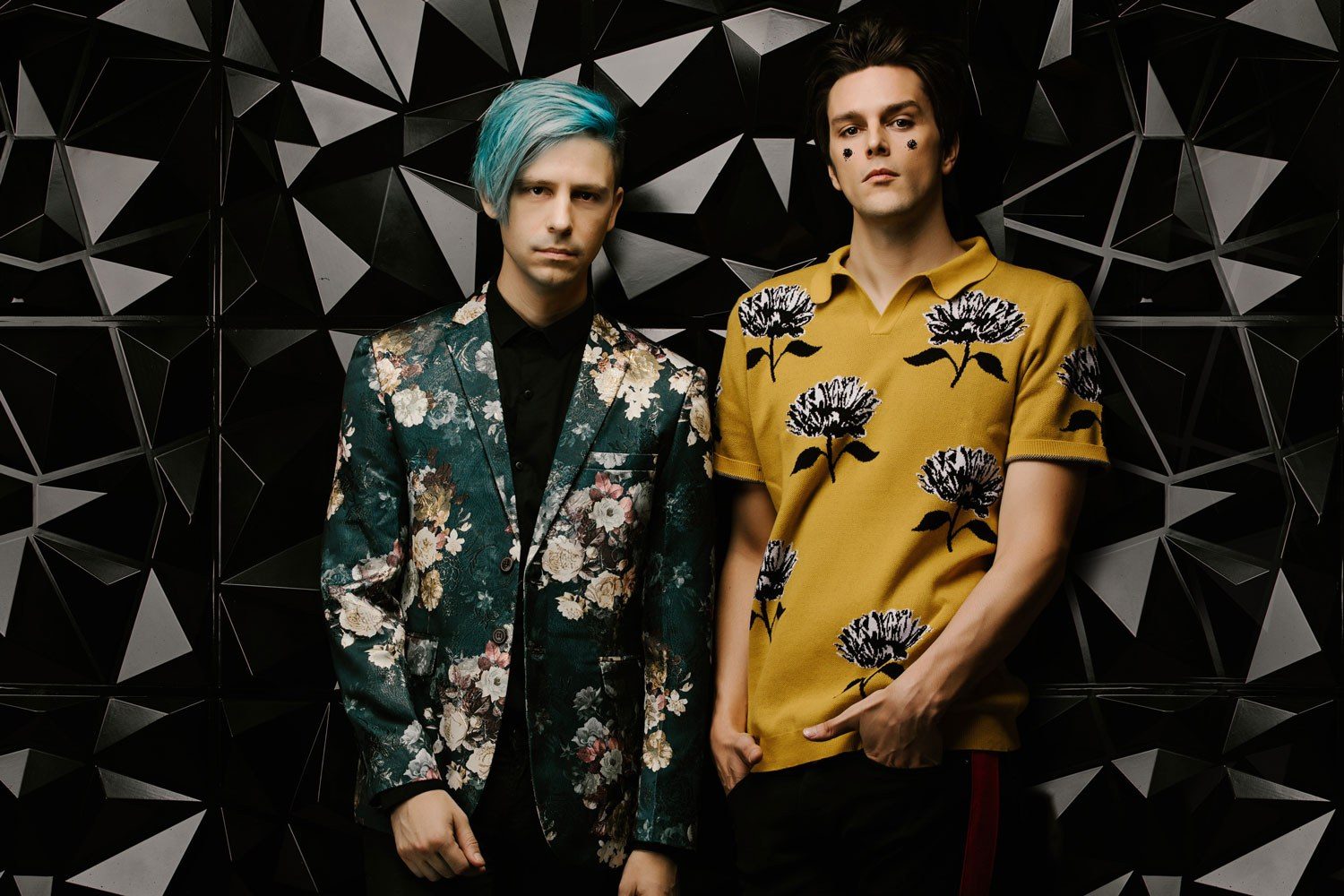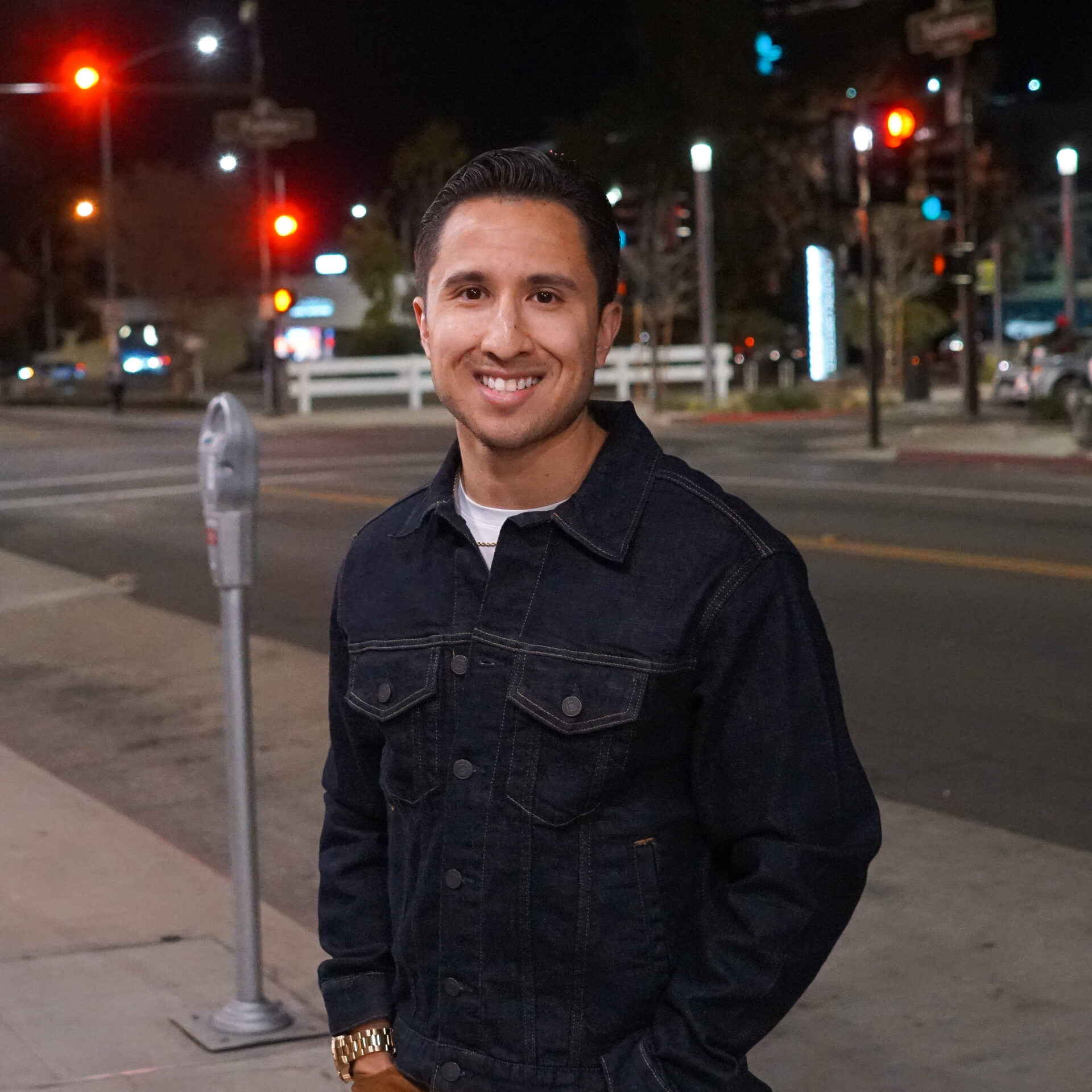When Defy was released in January of 2018, Of Mice & Men didn’t wait for the usual album cycle for them to engage in the inspiration that hit them. As soon as October, they were right back into the studio working on their sixth album, Earthandsky. The band collectively turned up the volume on the aggression that imbues itself throughout the album. With that, they also pushed themselves to try different things from a musical standpoint as shown in the atmospheric air of the title track.
While songs like “Mushroom Cloud” pinpoint a certain moment of darkness for lead vocalist/bassist Aaron Pauley, the overall spectrum of the album is to be honest about these emotions. When you do that, you can understand them and harness them into something useful. I spoke to Pauley about the process in which the album came about and how the band was moved to go into heavier territory.
You released Defy last year, but later into the year, the band went right back into the studio with Josh Wilbur. He’s produced albums with bands like Lamb of God, that come from this harder metal pedigree. I saw that he also encouraged the band to try some new things. How was going into the studio so soon and working with Josh on Earthandsky?
So, when we record an album, there’s usually a six-to-eight month leeway for us. We had done a bunch of touring before Defy and then we’ve done a bunch of touring… towards the end of the year. We were just like instead of having gap time where we’re not being productive, let’s just get in the studio. Then, we started looking at producers and engineers with studios in the area.
And that’s kind of when happened upon realizing and talking about [Josh’s] discography. Like you’d mentioned, we were like, man, it would be really great to do a really kind of heavy and more aggressive record with Josh. One thing he pushed us to do was just to not overthink things. We tend to be a band that kind of works and reworks. We tweak, listen, and go back and tweak some more. He kind of just encouraged us to go more by kind of how our first reactions to certain things were.
“Gravedancer” and “As We Suffocate” follow each other and I don’t think that’s a coincidence. “Gravedancer” is more like a nihilistic song about being self-destructive. With “As We Suffocate,” that’s the first time you start singing on the album. I feel like you’re asking yourself a question. “How do I change this phase?”
The song started with that melody and it was originally a guitar line. One funny thing that can happen in the studio is you can end up changing a part of a song. Nobody really knows why it ends up changing, but then everybody has the same sort of mindset that the part was good as it was before. Then you end up getting back to, “well, why don’t we just do that again?” You kind of realize that changing it was not really anybody’s intention other than just to try it.
We kind of circled back around to utilizing that melody, but instead of having a guitar, Josh suggested that we try different instruments with it. We ended up kind of settling on a Dilruba. It just gives it kind of like a really cool texture. Also, it’s an interesting soundscape that represents the song that’s playing while people are dancing around the grave.
With “As We Suffocate, there’s this whole aura about the album where I feel comes with getting older and a lot the lyricism has a self-reflective tone. On “Taste of Regret,” it speaks to people saying the first things on their mind and not considering the feelings of someone else. “Deceiver/Deceived” touches on how people go into something blindly and don’t think to question it. It’s a cool layer to the album coupled with the heaviness that we see you go on this personal journey as you have gotten older.
I think for me a lot of being in my 30s now is about understanding or trying to better learn perspective and how perspective dictates reality. I think, in anybody’s life that good and bad things happen all the time. I think that the older you get and the more you understand, the more you kind of put into focus whether it’s good or bad. It will kind of amplify those things in your life. It’s not because there are more of one or the other, but it’s because it’s what you are deciding to put your focus on. I think that our ability to have focus and our ability to have perspective is kind of, you essentially what separates us from the animals.
When I listened to Defy, there’s “Unbreakable,” which is this rousing song of self-empowerment. “Mushroom Cloud” is a song when I felt that you hit this point of you wanting to change things because it was a real dark moment in your life. It’s one of the heaviest songs on the record. How did this song come about?
That was an instrumental that Tino had wrote and demoed out. It’s very chromatic. It’s very fast. It’s a very manic feeling song. A lot of it feels very claustrophobic and intense because there’s not a lot of breaks in it. It’s just very grinding. It’s very 16th note heavy. I think that song kind of sat in our Dropbox for a while because I just could not find the right lyrics for it. I think music, that in and of itself is a language. I think that my responsibility as a lyricist is to find lyrics that coincide with what the song is actually saying. So that it’s not conflicting. So that there’s not this kind of weird sort of intangible dissonance that I feel like fans can hear.
I feel like when there’s a conflict in what the song is saying musically and what it’s saying lyrically, that it’s kind of it’s almost palpable. That song kind of sat for a little bit and I’d gone through a couple of weeks of just being very, very stressed out. I haven’t slept well in years. That’s just something that I’ve learned to deal with. I think at the time, I was sleeping even less, and I wasn’t really eating enough. I wasn’t taking good care of myself and I just kind of reached this point where I was awake at like two or three in the morning and I was just like, freaking out. I just basically snapped.
One way that I calm myself down in times like that grabbing a guitar or a notebook and I’ll just write. Whether it’s music or it’s writing words. Just something. I knew that I still had so much of the record to finish. I wouldn’t say so much of it, but there were a handful of songs to finish and that was one that was kind of always nagging at me. I literally pulled it up. It’s such a spastic and dissonant song, but at the time, it sounded like Mozart to me. It just sounded like this is exactly how I’m feeling right now. It just kind of flowed out.
I don’t think I spent more than ten minutes getting the words out. The next day, I went and tracked it. It was me, Tino, and Josh Wilbur. Once the song was tracked, I did it in two passes. Once the song was tracked, both Josh and Tina kind of pulled me aside separately and asked ‘dude, are you alright?.” I was like, “no, I don’t think so.” That was kind of one of the first times that somebody asked me. Then I was actually able to be a little bit self-reflective. Maybe not just focusing on making the album we’re doing that, but also being able to be honest with myself, my friends, and family, you know?
Oh, wow, man. Is everything okay? Do you feel better getting all this aggression out with Earthandsky? Have these things have kind of lightened up for you a little bit since?
I have gotten good days and bad days man, just like anybody. One thing that I have to always work on because of my mental health is my perspective on things. There are some days where I wake up and I feel like I can conquer the world. I write songs like “Unbreakable.” Then, there are some days where I literally don’t want to get out of my bunk. Where I just don’t want to do anything. I just want to go to sleep until I get home.
For me, it’s all about perspective. It’s all about whatever I decide to put my energy and focus into. That is what is going to dictate my reality. I think it’s because there’s such a dichotomy of good and bad all the time. I think that it exists like yin and yang, equally. Whatever you put your focus on is what you’re going to see, literally and figuratively.
I wanted to touch on the title track because from a sonic sense, it’s different than any song on the album and songs the band has done previously. There are different time signatures and really feels like you’re in space. points. What made you guys want to get out of your comfort zone? I feel like this is one of those songs you can take and build upon when you work on the next album.
Yeah, so that was an instrumental idea that Allen had brought to the table. The initial 7/4 riff. We were kind of expanding on that and that song took a bunch of different structures at first. That was one where we kind of had a bunch of different parts. It was assembled somewhat, but that was when we sat down with Josh and we said “all right, we have these parts. Let’s put this down.” Cool. What would we go into next? A drum fill into like a kind of faster part.
I think building the song like that was really awesome. I remember the first time that Allen had played that lead line, I was just like, “man, to me, this feels like space.” So, to me, “Earth and Sky” just kind of seemed like the perfect imagery. That song is ultimately about perspective. I think that it encompasses the theme of the record and which is why we named the record that. I also feel that along with it semantically sounding like space, like you said, I think that was kind of what hit me at first. It lends itself really well for that metaphor.
“How To Survive” is the first song that the band released within the Earthandsky era. Going from “Meltdown” to “Linger,” it’s a blowup and then a song specifically about loss. “How To Survive” is the song for the fans, the underdogs, and yourself. you. I like how you ended Earthandsky with that message. Even with all the harsh emotions on this album, you can still fight to see the light at the end of the tunnel. Was there any thought of placing this song as the last one on the record?
I think that was one of the last instrumentals written and one of the first vocals finished. That was the first song completed for the record. We had sent that song to mixing for release before we were even finished with the record. I think that kind of set the tone. One thing that I always want to make sure that our fans understand is that like while I think it’s important to talk about the negative, it is that the album is about addressing those things and understanding how they fit in with the positives. I think it’s important that you don’t get bogged down in that. I think that it’s important that if you’re going to kind of dive into the material parts of yourself, that there’s something in there that also allows you to wash it away when you’re done.
For us, it made sense to kind of put the first song that we had released at the end of the album, for the sake of let’s not put anything in the album that we would consider a skippable trap. “Oh, I’ve heard this before. Let’s skip that.”That song didn’t even seem to be the mission statement until we had decided to put it at the end and listened to it in context. It’s like, wow, that actually makes a lot of sense. I think a lot of what we do, I would even use the word serendipitous. ends up that way. A lot of what we’re doing is subconscious. I’d like to say that we’re smart in our planning of things like that. However, I think in a lot of ways, the songs, the messages, and meanings in and of themselves, the creators don’t even necessarily understand until they’re in full context of each other.













